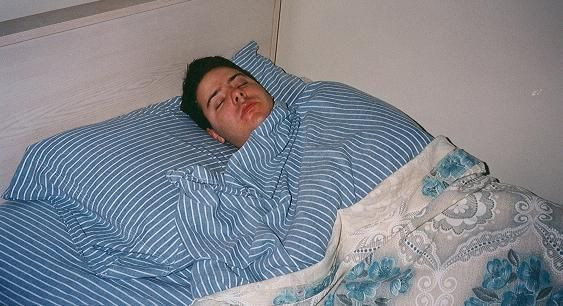Obesity Epidemic Could Cause Rise In Sleep Apnea Cases

A new study suggests a link between the rise in obesity and the increase in sleep apnea cases, giving overweight people who love sleep a reason to lose the extra pounds.
Study author Paul Peppard, an assistant professor of population health sciences at the University of Wisconsin-Madison, and his team found an increse in sleep apnea cases of almost 55 percent over the past two decades. Although the research was done in Wisconsin, Peppard believes an increase could be found in rest of the country as well, AOL's HealthDay News reported.
The researchers studied adults between the ages of 30 and 70. About 600 to 700 underwent sleep tests between 1988 and 1994. Some of the participants continued with more subjects in tests between 2007 and 2010. Participants were considered to have moderate-to-severe breathing problems if they had trouble breathing 15 or more times an hour while sleeping.
The researchers estimated that if their findings were to apply to the rest of the country, 10 percent of men ages 30 to 49 and 17 percent of men ages 50 to 70 would have symptoms of sleep apnea. The number was much smaller for women with only about three percent of those ages 30 to 49 and nine percent ages 50 to 70. All groups showed a trend in which heavier people were more likely than thinner people to suffer from symptoms.
The study estimates that the number of cases of sleep apnea have gone up from 14 percent to 55 percent from 1999-1994 to 2007-2010. Peppard thinks 80 to 90 percent of the increase is due to the obesity epidemic.
"There are probably four million to five million people who are more likely to have sleep apnea due to the obesity epidemic," Peppard said. "It's certainly an uncalculated cost of the obesity epidemic, an epidemic on its own."
There are many factors that cause sleep apnea, including being older, being male, having a narrower upper air way, or having a genetic predisposition to the condition. Sleep apnea occurs when a person's airways are blocked, forcing them to wake up subconsciously and start breathing properly again. It prevents them from staying in a deep sleep. Besides unknowingly getting less restful sleep, sleep apnea has also been known to contribute to heart and health problems, according to HealthDay News.
A common treatment fo sleep apnea is wearing a mask connected to a continuous positive airway pressure machine (CPAP) which will blow air into the throat, keeping it open while the person sleeps.
"It's very effective, but some people don't like to use it," Peppard said. As for other options, Peppard had one suggestion: weight loss.
Sources:
Peppard PA, Young TE, Barnet JO, Palta MA, Hagen ER, Hla KH. Increased Prevalence of Sleep Disordered Breathing in Adults. American Journal of Epidemiology. April 2013.



























